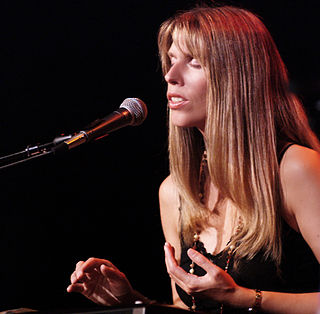A Quote by Tony Harrison
A poem, once it's written, is meant to be read with the inner voice of the person who reads it.
Related Quotes
Truly fine poetry must be read aloud. A good poem does not allow itself to be read in a low voice or silently. If we can read it silently, it is not a valid poem: a poem demands pronunciation. Poetry always remembers that it was an oral art before it was a written art. It remembers that it was first song.
Ever since I was first read to, then started reading to myself, there has never been a line read that I didn't hear. As my eyes followed the sentence, a voice was saying it silently to me. It isn't my mother's voice, or the voice of any person I can identify, certainly not my own. It is human, but inward, and it is inwardly that I listen to it. It is to me the voice of the story or the poem itself.
I just think that the world of workshops - I've written a poem that is a parody of workshop talk, I've written a poem that is a kind of parody of a garrulous poet at a poetry reading who spends an inordinate amount of time explaining the poem before reading it, I've written a number of satirical poems about other poets.
ONCE WHEN I WAS ninth grade i had to write a paper on a poem. One of the lines was"If your eyes weren't open you wouldn't know the difference between dreaming and waking' It hadn't meant meant much to me at the time. After all there'd been a guy in the class that i liked so how could i be expected to pay attention to literary analysis? Now three year later i understand the poem perfectly.
Just as one spoils the stomach by overfeeding and thereby impairs the whole body, so can one overload and choke the mind by giving it too much nourishment. For the more one reads the fewer are the traces left of what one has read; the mind is like a tablet that has been written over and over. Hence it is impossible to reflect; and it is only by reflection that one can assimilate what one has read. If one reads straight ahead without pondering over it later, what has been read does not take root, but is for the most part lost.





































